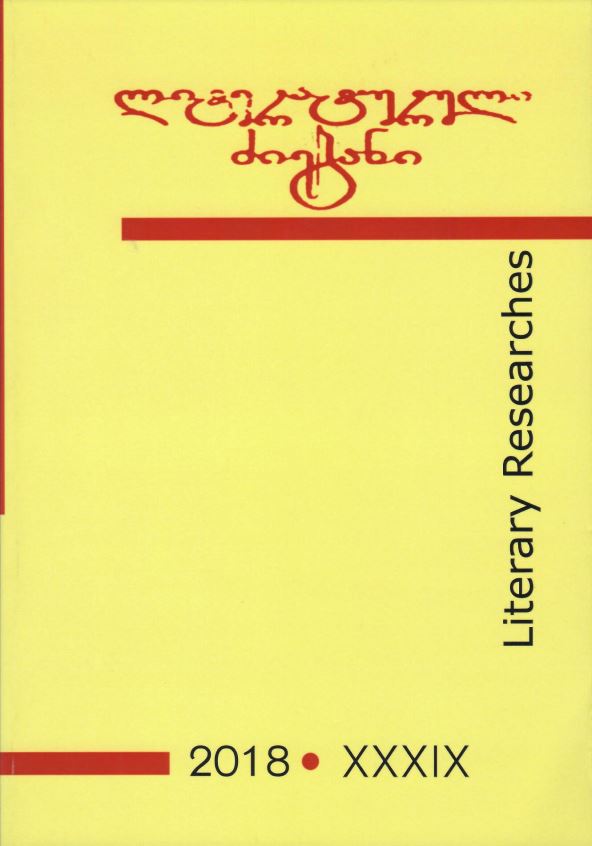გამოქვეყნებული 2018-12-20
საკვანძო სიტყვები
- Reader,
- Writer,
- Georgian Literature
როგორ უნდა ციტირება
ანოტაცია
Over the centuries, in the footsteps of literary processes, the reader is transforming in a different way, is changing its tastes, the perceptions of the artistic work and the evaluation’s criterias. Every time and epoch in different countries the writer’s’ attitude towards the readers is different. For example, a realist writer is more interested in a wide range of readers than a modernist creator. For the postmodernist author the reader is also a buyer of his “product”, accordingly, he/she makes equal attention to the “packaging”, that will bring material benefits. Every writers have their written languages and styls, because they wante to express their thoughts and share them with others. Today, in order to be good reader, everyone needs to read a lot. Every master writer have the certain kind of audience for his craft. What some people can find interesting may not be same for others, because people have different levels of thinking and different interests. Some writers write for general patronage, others for Teenagers and there are some writers who write for certain subjects that require deep knowledge, like scientific research, political science, and
more complex essays. Writing is a difficult process of putting all thoughts together, whether it is a researched study or just plain comments about certain topics. A writer must be effective in delivering his thoughts, and his audience must appreciate or show a reaction toward his work, if they do that which he is expecting them to do. The writer is the one who communicates his thoughts on some subjects to the group of different readers, the audience.
Contemporary and classic fiction texts require a different reading from the readers. As it is known in the Artistic work there are different codes and signals that need to be deciphered for deeply understood. The relationship between the writer and the reader is a complex and versatile phenomenon. Readers of literature are enabled to see into different lives, different communities, different worlds. In this article we have presented several different models and paradigms of the reader.
It should be noted, for current writers, the question of a relationship to the reader is a complex one as well. It’s better in some ways to figure that once a book or story is published, it not means, that readers will get what they want out of it. On the basis of their own experiences readers can get only those information that related to their experience. Some writers write for a traditional reader, while others create a new reader.

